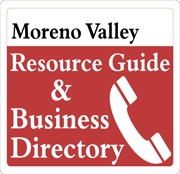Inland Empire United Way (IEUW) has received a $20,000 grant from the Bank of America Charitable Foundation to feed hungry kids in the Inland Empire through its Kids Pack program. Kids Pack addresses food insecurity for homeless and very low-income children, who rely on free school meals, by providing a backpack of food each weekend during the school year. The grant will allow IEUW to deliver this vital program to 240 kids for the entire school year.
In a region with over 25,000 students who are homeless or unstably housed, food is not always readily available. To address this issue, United Way’s Kids Pack program provides backpacks of nutritious food to 1,725 children in 12 school districts throughout the Inland Empire. Eligible children are those who rely on free school meals as their main source of nutrition and who often have little or no food available during the weekends.
“Students on Kids Pack have often reported that the Kids Pack items are sometimes the only food they have to eat during the weekend,” said Gregory Bradbard, President and CEO of Inland Empire United Way. “We are very grateful for the generous support of the Bank of America Charitable Foundation, which will help us serve even more children in need this coming school year.”
“We partner with organizations like Inland Empire United Way to meet people at their point of need so that they can overcome fundamental challenges, achieve stability, and improve their financial lives,” said Al Arguello, Inland Empire market president, Bank of America. “We are proud to be able to support the Kids Pack program to help feed hungry children, so that they can arrive at school each Monday ready to learn.”
Research demonstrates that when kids are well nourished, they can focus on learning and development. The ultimate goal of the Kids Pack program is to ensure that disadvantaged children are better able to participate and succeed in school. With the help of the Bank of America Charitable Foundation Grant, children receiving Kids Pack will increase their likelihood to achieve a healthy, self-sufficient future as a result of the program’s positive impact on school performance.








